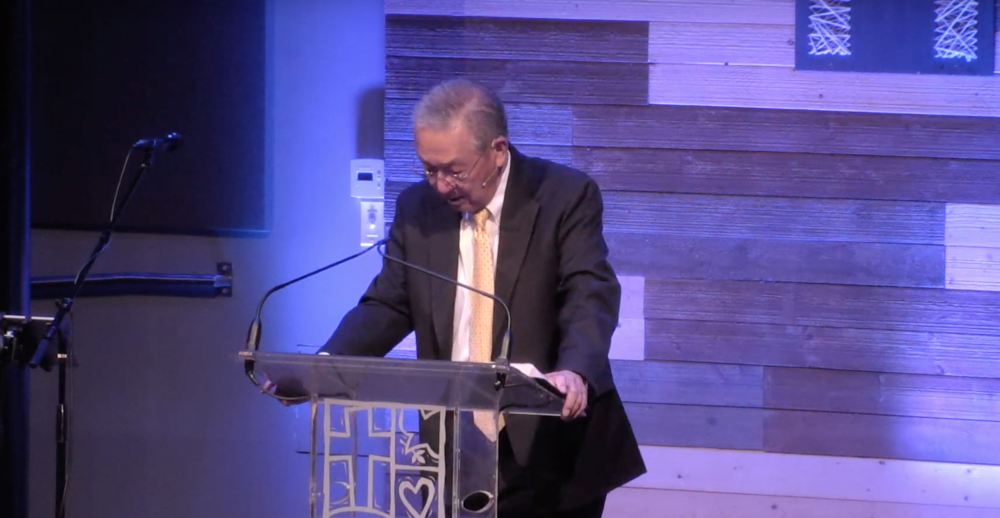Editor’s Note: This is the second installment of our “Asian American Leadership” series.
We are grateful for the contributions of Dr. Ben Shin and DJ Chuang (djchuang.com) in helping to formulate this list.
This post nor the series is not meant to be an exhaustive overview of every notable Asian American leader. But our goal is simply to bring awareness to how God continues to use Asian Americans to do his kingdom work. We welcome additional input for subsequent installments in this series.
In addition, the people on this list may or may not align completely with SOLA Network’s statement of faith. But we believe in the unity of the Gospel, and we pray for these leaders to continue to work in faith through the guidance of the Holy Spirit.
As immigration from Asia boomed starting from the 1960s, the immigrant church and the Asian American church grew as well. Many churches and ministries that grow and thrive today have been impacted by the work of ministry pioneers, who sought to frame and define Asian American Christians so that they could be taught and ministered to in their unique cultural context.
Through their insightful work, they put language to what was happening within local Asian American bodies and helped catalyze a generation towards Christ. Here are five early pioneers who helped frame discussion on ministry to Asian-Americans.
1. Hoover Wong and the Models within the Immigrant Churches
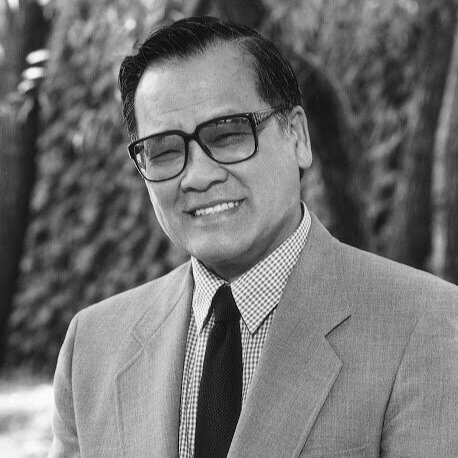
Dr. Hoover Wong was a pastor in the Chinese and multicultural churches in Los Angeles, Chicago, and Hawaii for 35 years. He joined Fuller Seminary as full-time faculty in 1990 to lead the Chinese Studies program. His writings included Community: Coming Together or Coming Apart (1999) and How to Do Church (2003), dealing with outreach to the Chinese diaspora as well as to Chinese on the mainland and in Taiwan. He was also a contributing editor for the international journal Chinese Around the World, maintaining an ongoing column called “Ministry that Matters.”
English-speaking Asian Americans who work in immigrant churches often use terms like townhouse model or duplex model. Dr. Wong originated and popularized this vocabulary that helps people understand how English-speaking, second-generation congregations relate to the heritage-language-speaking, first-generation congregation. Dr. Wong passed away in 2018 but we will always be grateful for his contributions to the Asian American church.
2. Cory Ishida and Americanized Asian Americans
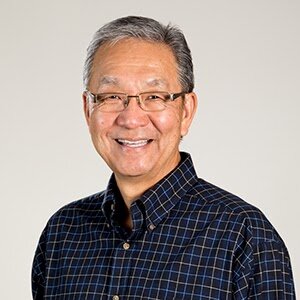
While most second-generation Korean-Americans, American-born Chinese, and Nissei Japanese-Americans did ministry in the context of their ethnic-specific immigrant church, Evergreen SGV was the first of its kind that specifically recognized the need to minister to Americanized Asian Americans (AAA). The architect of that philosophy is Pastor Cory Ishida.
Evergreen started as one church (Evergreen) under Ishida’s leadership. It now has given birth to Evergreen SGV in La Puente, Evergreen LA in Rosemead, Gateway Friends in Diamond Bar, Lighthouse Community Church in Torrance, Epic Church in Fullerton, Lifesong Community Church in Chino and Seeds of Life Church in Alhambra. They have also assisted in planting CrossLife Community Church in Sierra Madre. In addition, Evergreen started the Asian American Christian Counseling Service over 30 years ago.
Because of his long ministry career and willingness to mentor, Cory has become a mentor to many leaders in the region. After 42 years of ministry, Ishida retired from the church in April 2019. We are grateful for his leadership.
3. Helen Lee and the Silent Exodus
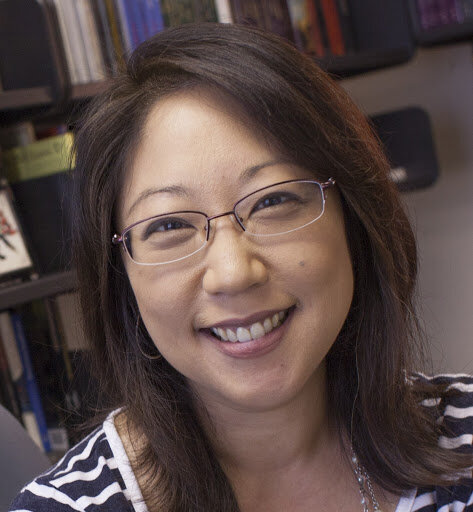
In the East American community, the term Silent Exodus has been used to describe the exodus of the 1.5 and second-generation Asian Americans from the churches. Author Helen Lee popularized the term in her seminal article “Silent Exodus,” which analyzed this phenomenon within the Asian American church. After her article was published in 1996 in Christianity Today, it was quickly shared and the term became an alarm and rally for the church to offer solutions to help the next generation of Asian American Christians.
Her article continues to be read and cited because it clearly laid out the problems the immigrant church faced with building up, connecting, and coexisting with its growing English-speaking congregations, problems that churches continue to wrestle with to this day.
In 2014, Lee revisited the Asian American church with another Christianity Today cover story, “Asian Americans: Silent No More.” In this article, she writes about the successes Asian Americans have had in the years since in creating their own churches, as well as the obstacles they have had to overcome as they are still seen as outsiders in the evangelical world.
Helen Lee is an author, editor, and speaker. She is the associate director of strategic partnerships and initiatives at InterVarsity Press. She’s also the author of The Missional Mom, and is the co-editor and contributor of Growing Healthy Asian-American Churches. We are grateful for her articles that have given the Asian American community language and urgency.
4. Louis Lee and the Creation of Asian American Networks
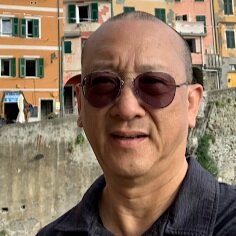
One of the first persons to help support and network Asian American leaders is Louis Lee. He founded MESA (Ministries for English Speaking Asians), a parachurch ministry, in 1988. The goal of the group was “to promote greater harmony within the evangelical Asian American (EAA) community by focusing on two primary ministries: conferences and regional fellowship meetings for EAA leaders.
During his time at MESA, Lee would pastor part-time and then use the rest of his energy to support Asian American pastors and parachurch leaders. Through the relationships he built, Lee organized more than 18 conferences in 6 different locations around the country. The biggest conferences were the Asian American Leadership Conferences, which were held three times.
In 2010, Lee went back to full-time pastoral ministry, and he retired in 2019. He will continue to do MESA part time as God enables him. We are grateful for MESA’s help in creating a framework for other networks and conferences contextualized for Asian Americans.
5. Peter Cha and Writings on Asian American Ministries

There have been many who have written on the subject of Asian American ministries. Among them, Dr. Peter Cha stands out as a pioneer and continuing leader on the subject. Dr. Peter Cha is a professor of Church, Culture and Society at Trinity Evangelical Divinity School. He also has a background in different ministries, including youth and young adult ministry in Korean American churches, campus ministry with InterVarsity Christian Fellowship, church planting and pastoring a multiethnic Asian American congregation.
Dr. Cha’s contribution came through writing at a time when few were writing about Asian American ministries. He, along with other contributors, began to write about the questions that many Asian Americans were beginning to ask. Two of his earlier collaborative works served as pioneering writings. Following Jesus without Dishonoring Your Parents: Asian American Discipleship (IVP, 1998) framed a question that many Asian Americans have had regarding what it means to follow Jesus from an Asian American cultural context. More than answering that specific question, it gave permission for Asian Americans to ask other questions from their cultural context. Growing Healthy Asian American Churches (IVP, 2006) is a book that examined Asian-American churches. It became the first of its kind which looked at English-speaking Asian-American churches and congregations to ask what works and what does not.
He also contributed chapters to Teaching for a Culturally Diverse and Racially Just World (Wipf and Stock, 2014), Honoring the Generations: Learning with Asian North American Congregations (Judson Press, 2012), Revitalizing Practice: Collaborative Models for Theological Faculties (Peter Lang Publishers, 2008), and This Side of Heaven: Race, Ethnicity, and Christian Faith (Oxford University Press, 2006). We are grateful for his many contributions in creating a space for Asian Americans to process and validate our unique experiences.

